All This, and Heaven Too

Brief Synopsis
Cast & Crew
Anatole Litvak
Bette Davis
Charles Boyer
Jeffrey Lynn
Barbara O'neil
Virginia Weidler
Film Details
Technical Specs

Synopsis
At a New York girls' school, a teacher is taunted by her students to tell the tale of the tragic romance that preceded her undeserved notoriety as "Mademoiselle D:" In 1846, Henriette Deluzy-Desportes voyages from England to France to apply for the position of governess in the household of the Duc de Praslin. Once hired, Henriette enters a house that has been poisoned by the insane and neurotic love that the Duchesse bears her husband, the Duc. Finding that her four charges have been emotionally abused and neglected, Henriette works to establish an atmosphere of warmth and love that the children have never known. The Duc, who despises his crazed wife, responds to Henriette's kindness and concern, and an honorable bond of understanding blossoms between them. When this friendship causes gossip, the Duc stops seeing Henriette and effects a facade of reconciliation to placate his jealous wife. He finds that he is unable to foresake his friendship with Henriette, however, and visits her and the children at his family estate in Melan, where they are spending the holidays. After a few fleeting days of happiness, the Duchesse and her wealthy father, the Marechal Sabastiani, appear and dismiss Henriette with the promise of a forthcoming letter of reference. The letter is never sent, however, and Henriette, unable to obtain a job without it, is forced into poverty. When the Duc discovers this, he confronts his vindictive wife and, in an insane rage, murders her. After Henriette is imprisoned for complicity in the murder, the Duc takes his own life rather that implicate her in his crime, and she is released for lack of evidence. Henriette is then befriended by the kindly Henry Martyn Field, a fellow passenger on her earlier voyage to France, who finds her the job at Miss Haines School for girls in New York. Upon hearing her tragic story, the girls award her their friendship and sympathy, and Henriette faces a happier life with her students and Henry at her side.

Director

Anatole Litvak
Cast

Bette Davis

Charles Boyer

Jeffrey Lynn

Barbara O'neil

Virginia Weidler

Helen Westley

Walter Hampden
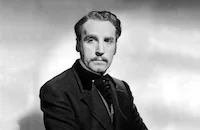
Henry Daniell
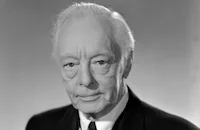
Harry Davenport

George Coulouris

Montagu Love

Janet Beecher
June Lockhart

Ann Todd

Richard Nichols
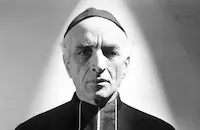
Fritz Leiber

Ian Keith
Sibyl Harris
Edward Fielding

Mary Anderson

Ann Gillis
Peggy Stewart
Victor Kilian
Mrs. Gardner Crane
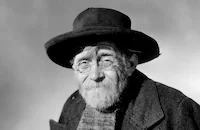
Christian Rub
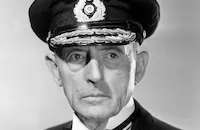
Frank Reicher
Egon Brecher
Betty-jean Hainey
Cora Sue Collins
Betty Jane Graham
Doris Bren
Marilyn Knowlden
Ann Howard
Gloria Fisher
Jeanne Wells
Susanne Ransom
Creighton Hale
Carmen Bretta
Crew
Al Alleborn
Bernard Deroux
Leo F. Forbstein
Hugo Friedhofer
Ernie Haller
Byron Haskin
M. K. Jerome
Robert B. Lee
David Lewis
Anatole Litvak
Warren Low
Orry-kelly
Irving Rapper
Casey Robinson
Jack Scholl
Sherry Shourds
Max Steiner
Jack L. Warner
Perc Westmore
Carl Jules Weyl
Rex Wimpy

Videos
Movie Clip




Trailer
Hosted Intro
Film Details
Technical Specs

Award Nominations
Best Cinematography
Best Supporting Actress
Articles
All This and Heaven Too
The book was a best-seller, and in 1938 Warner Bros. paid $100,000 for the film rights. It was something of a consolation prize for the studio, which had lost Gone With the Wind (1939) to David Selznick. And it also became one for Warner's most popular star, Bette Davis, who lost the role of Scarlett. Bent on revenge, the studio set out to outdo GWTW - even to the extent of referring to All This and Heaven Too (1940) in memos as ATAHT. The production cost $1,370,000, and it's all on the screen: 65 exterior sets, including a ship and a country chateau; and 35 interiors, many outfitted with genuine antiques as lavish and rich as befits the household of a duke.
To play Praslin, Warner Bros. chose French heartthrob Charles Boyer, who was also at the peak of his fame. And for once Davis had a co-star worthy of her. Boyer not only projected a melancholy sexiness, he was a brilliant and sensitive actor. But he almost didn't play the part. In 1939, Boyer had returned to France to make a film. He arrived on September 1 - the day Germany attacked Poland. Two days later, France declared war. Boyer's film was cancelled and, in a burst of patriotic fervor, Boyer enlisted in the French army - in spite of the fact that he was 42 years old and committed to star in All This and Heaven Too. But instead of important war work, Private Boyer was assigned switchboard duty. Before long, he was mustered out and returned to America, refusing to discuss his brief military career. Making All This and Heaven Too was an unhappy experience for Boyer, who was distraught by the daily war reports, and unable to understand his character. But his misery worked well for the character, a brooding, unhappily-married man. Director Anatole Litvak, who had also directed Boyer in Mayerling (1936) and Tovarich (1937), considered it one of Boyer's finest performances.
Litvak had worked with Davis before, too, in The Sisters (1938), but their relationship was a lot less cordial than the one with Boyer. It was rumored that Davis and Litvak had a brief affair, but whether they did or not, it didn't help their on-set relationship. She hated the way he worked, felt that he was inflexible, heavy-handed, and lacked spontaneity. She constantly challenged Litvak's direction, and at one point even threatened to have him fired. Nevertheless, many critics felt that Davis' portrayal of Henriette was one of her subtlest and most disciplined.
Barbara O'Neil (who played Scarlett's mother in Gone With the Wind) was cast as the Duchesse on the suggestion of Charles Boyer, who had worked with O'Neil in When Tomorrow Comes (1939). O'Neil wanted to play the neurotic, slovenly Duchesse realistically, but the studio insisted on giving her the full glamour treatment. In spite of that, O'Neil earned an Academy Award nomination as Best Supporting Actress.
The film was also nominated as Best Picture, as was cinematographer Ernest Haller. Bette Davis was nominated as Best Actress - not for All This and Heaven Too, but for The Letter (1940). The reviews for All This and Heaven Too were respectful, but the film was not the blockbuster the studio had hoped for. Perhaps at 140 minutes, it was too long. Maybe the subject matter was too grim. Director Anatole Litvak thought it was "overproduced. You couldn't see the actors for the candelabra," he complained. Most viewers would disagree. The performances of the three stars are so powerful that the glow of the candelabra seems dim by comparison.
Producer: Hal B. Wallis, David Lewis
Director: Anatole Litvak
Screenplay: Casey Robinson, based on the novel by Rachel Lyman Field
Editor: Warren Low
Cinematography: Ernest Haller
Art Direction: Carl Jules Weyl
Music: Max Steiner
Cast: Bette Davis (Henriette Deluzy Desportes), Charles Boyer (Duc de Praslin), Jeffrey Lynn (Rev. Henry Field), Barbara O'Neil (Duchesse de Praslin), Virginia Weidler (Louise), Walter Hampden (Pasquier), Henry Daniell (Broussais), Harry Davenport (Pierre), George Coulouris (Charpentier), Richard Nichols (Reynald), June Lockhart (Isabelle de Praslin), Ann E. Todd (Berthe de Praslin), Montagu Love (Marechal Sebastiani).
BW-141m. Closed captioning. Descriptive Video.
by Margarita Landazuri

All This and Heaven Too
Quotes
Trivia
Warner Bros. erected 67 sets for this movie, a record at the time.
Bette Davis' 37 costumes cost $1,000 each.
Ranked fifth best picture of 1940 by Film Daily's national poll of critics.
Notes
According to news items in Hollywood Reporter, Warner Bros. originally wanted Helen Hayes or Miriam Hopkins to star in this film. Life notes that the picture set a new record for number of sets erected, with a total of sixty seven. Life also states that the novel from which it was adapted is allegedly based on the experiences of Rachel Lyman Field's great aunt, who was known as "Mlle. D." According to Bette Davis' autobiography, Warner Bros. purchased the rights to the story for $100,000, and the budget for this film was set at $1,370,000. Davis also notes that the producers paid $1,000 for each of her thirty-five costumes. Material contained in the MPAA/PCA Collection at the AMPAS Library adds that Joseph I. Breen insisted that Warner Bros. change the original character of the Abbe Gillard because he was too sinister, and because religious figures were not allowed to be villains. The picture received the following Academy Award nominations: Best Picture, Best Supporting Actress (Barbara O'Neil), and Best Cinematography (Ernest Haller). It also was included in Film Daily's "ten best" list of 1940. Modern sources add that associate producer David Lewis wanted Greta Garbo to play the role of Henriette.

Miscellaneous Notes
Released in United States 1940
Released in United States 1940
















